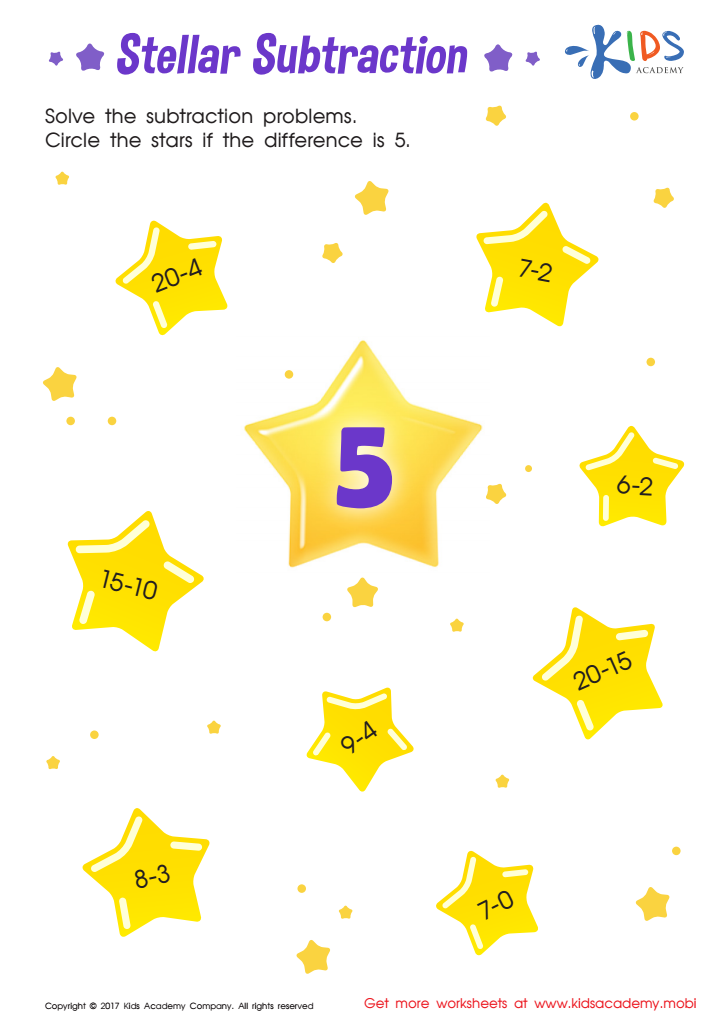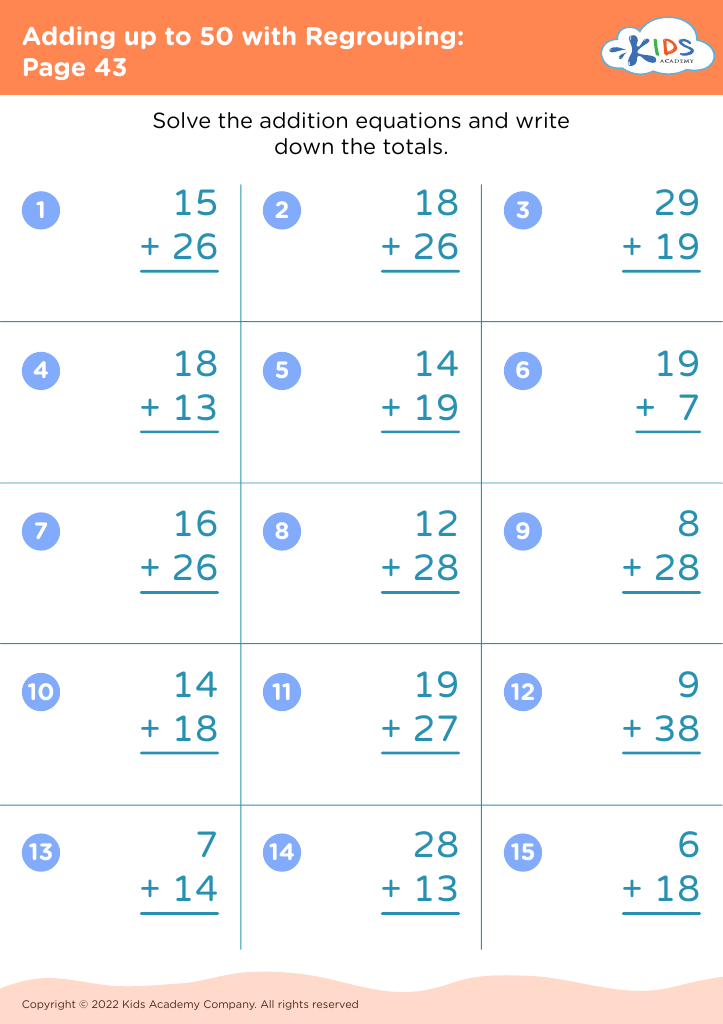Subtraction practice Addition & Subtraction Worksheets for Ages 3-8
77 filtered results
-
From - To
Boost your child's math skills with our engaging subtraction practice worksheets designed for ages 3-8! Perfect for young learners, these fun and educational sheets help build a strong foundation in basic math concepts. Featuring a variety of exercises, from simple subtractions to more advanced problems, our worksheets cater to different skill levels and learning speeds. Watch as your child gains confidence and proficiency in math, making learning enjoyable and effective. Download now from Kids Academy and turn math practice into an exciting adventure for your little ones!
[Link to the page: https://www.kidsacademy.mobi/printable-worksheets/age-3-8/math/addition-subtraction/learning-skills/subtraction-practice/]
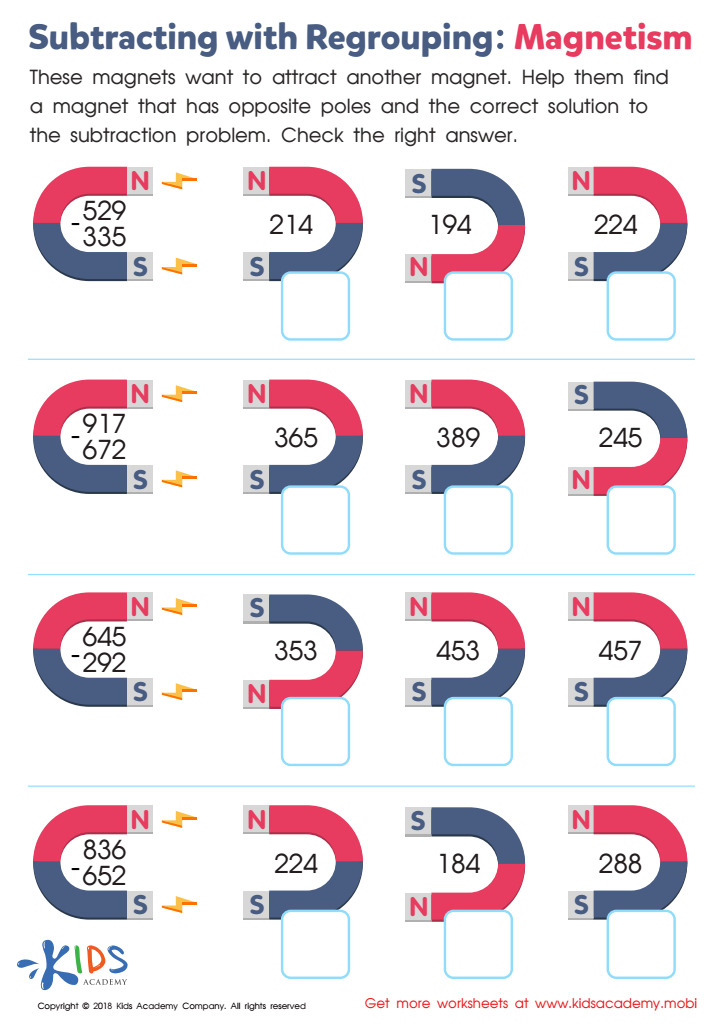

Subtracting with Regrouping: Magnetism Worksheet
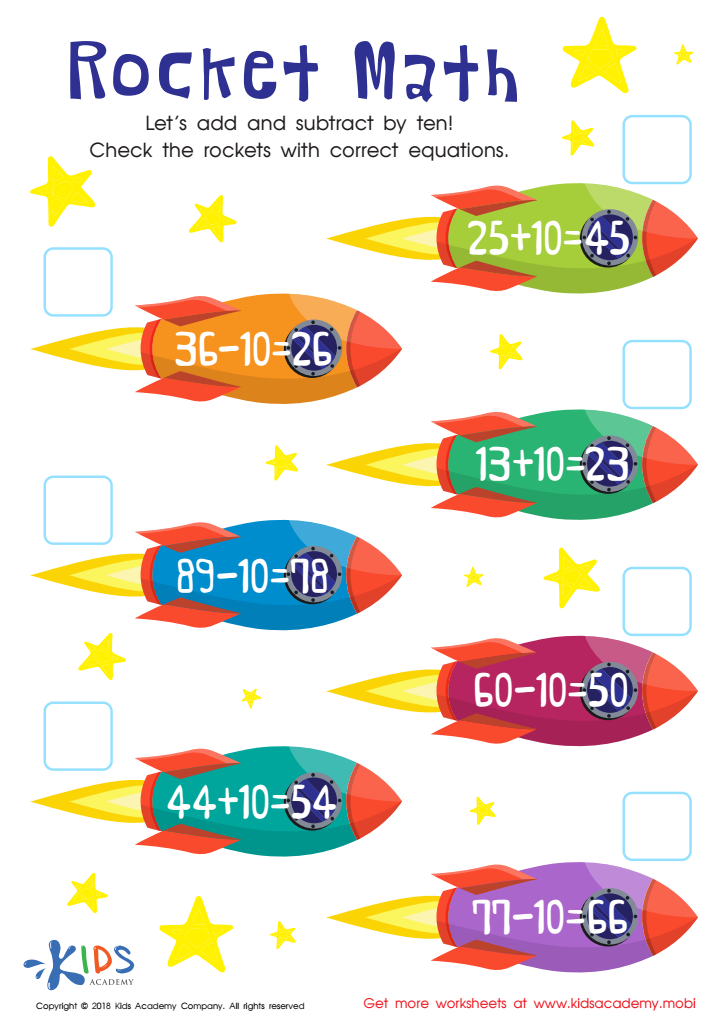

Rocket Math Worksheet
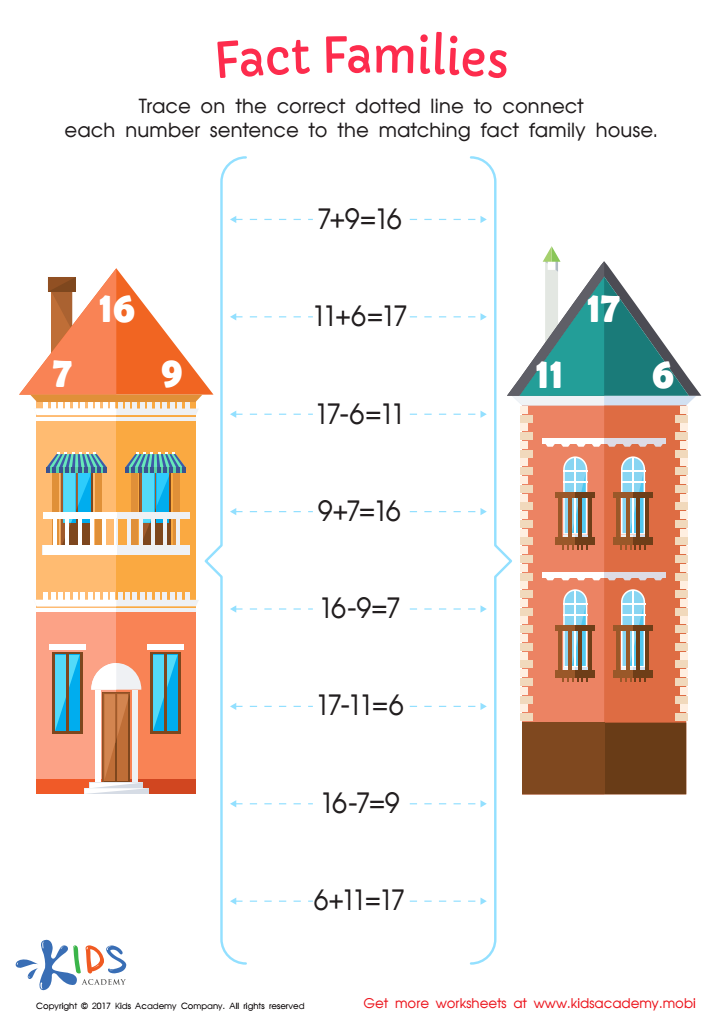

Fact Families — Add and Subtract Worksheet
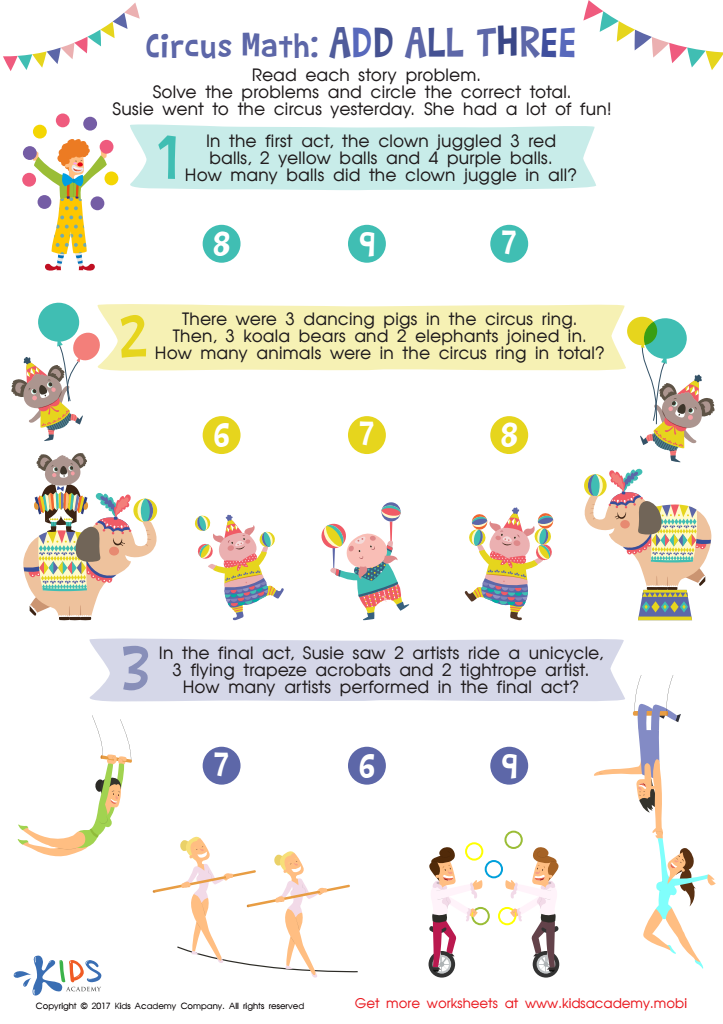

Circus Math Printable
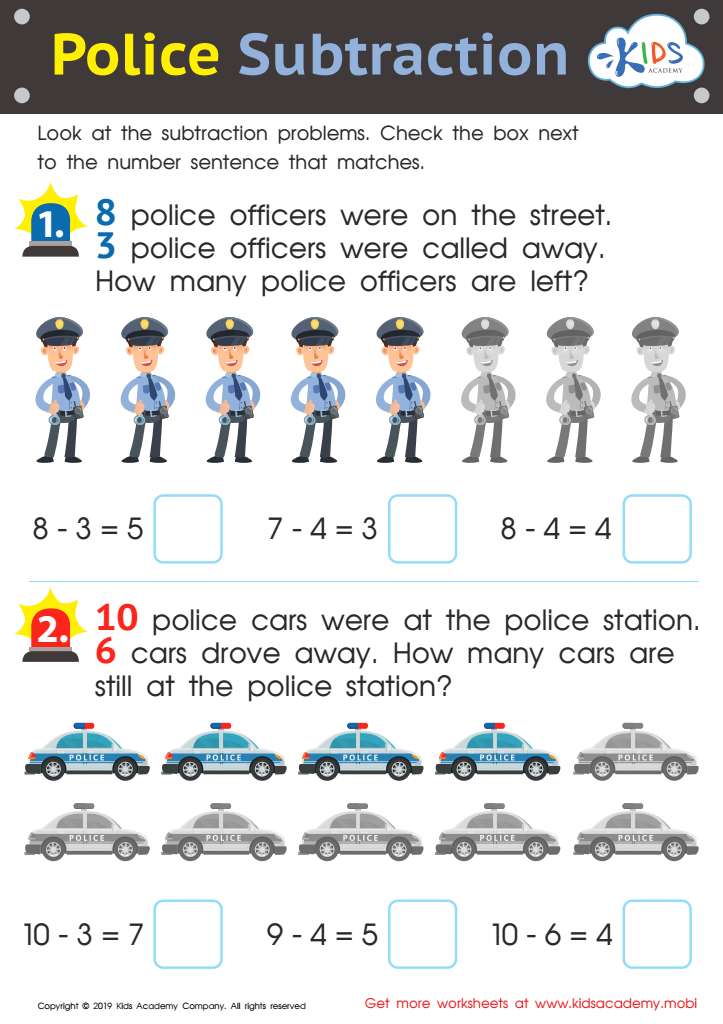

Police Subtraction Worksheet
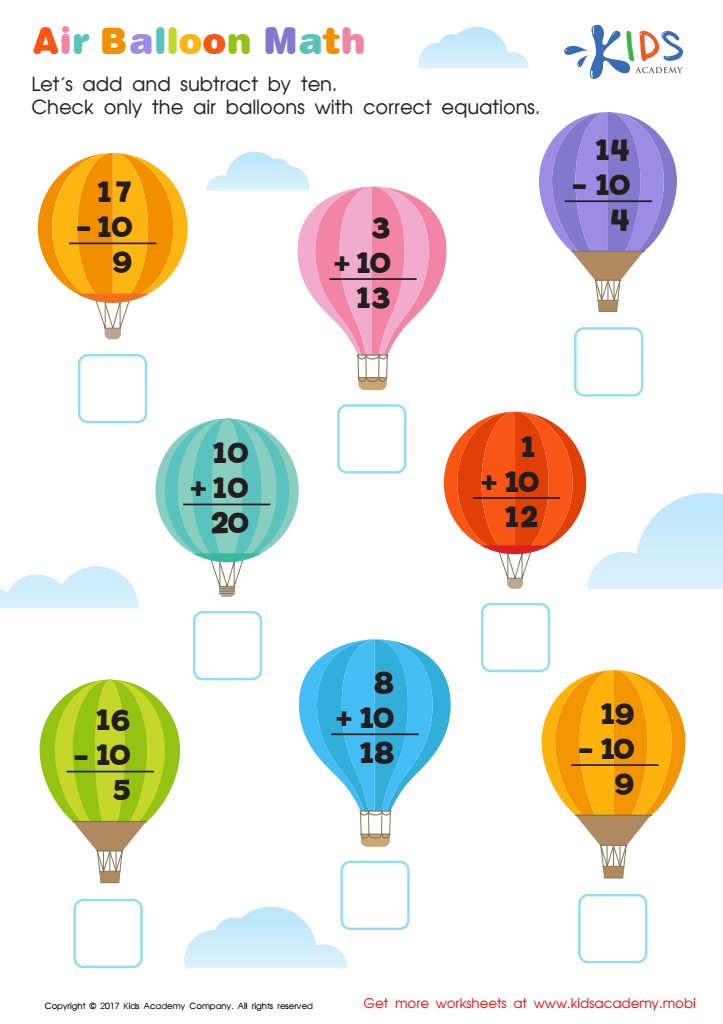

Air Balloon Math Worksheet
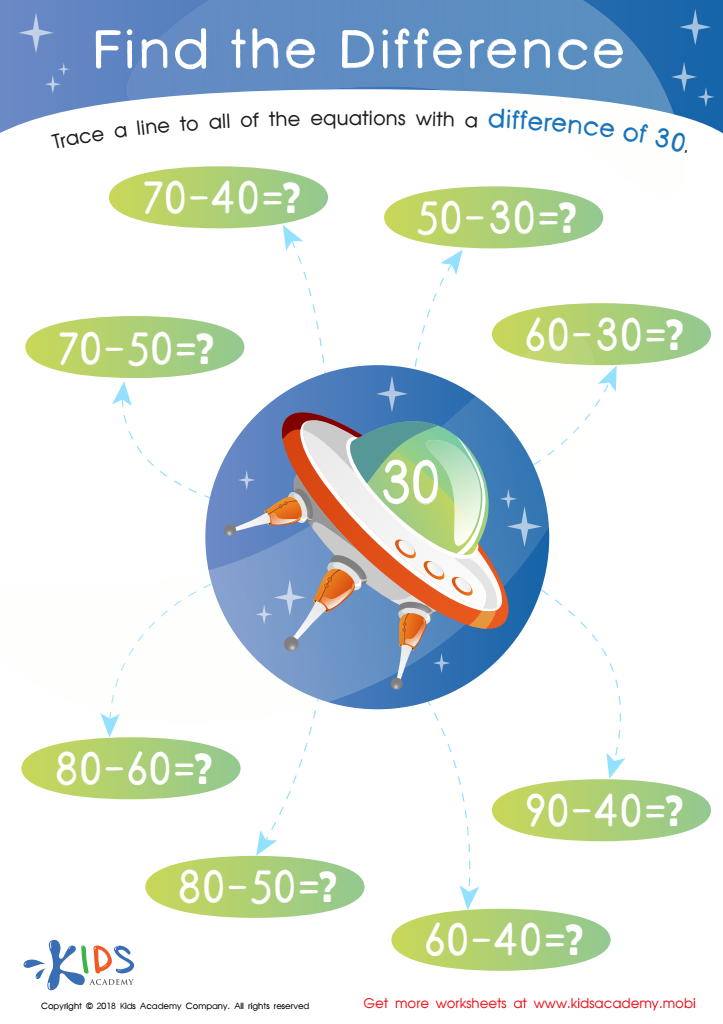

Find The Difference Worksheet
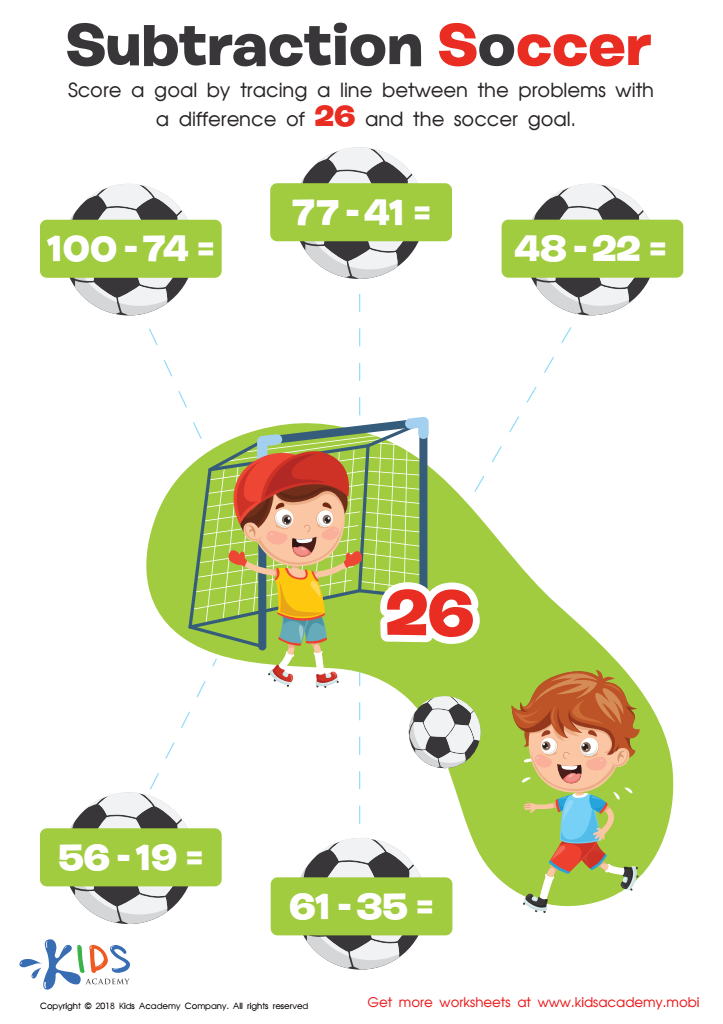

Subtraction Soccer Worksheet
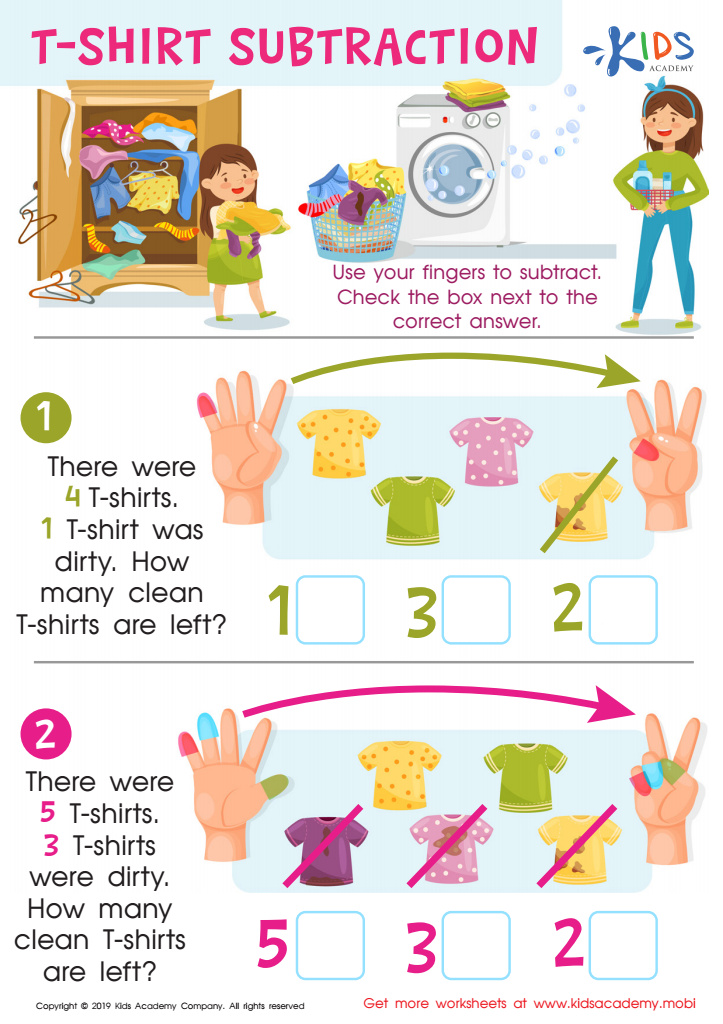

T-shirt Subtraction Worksheet
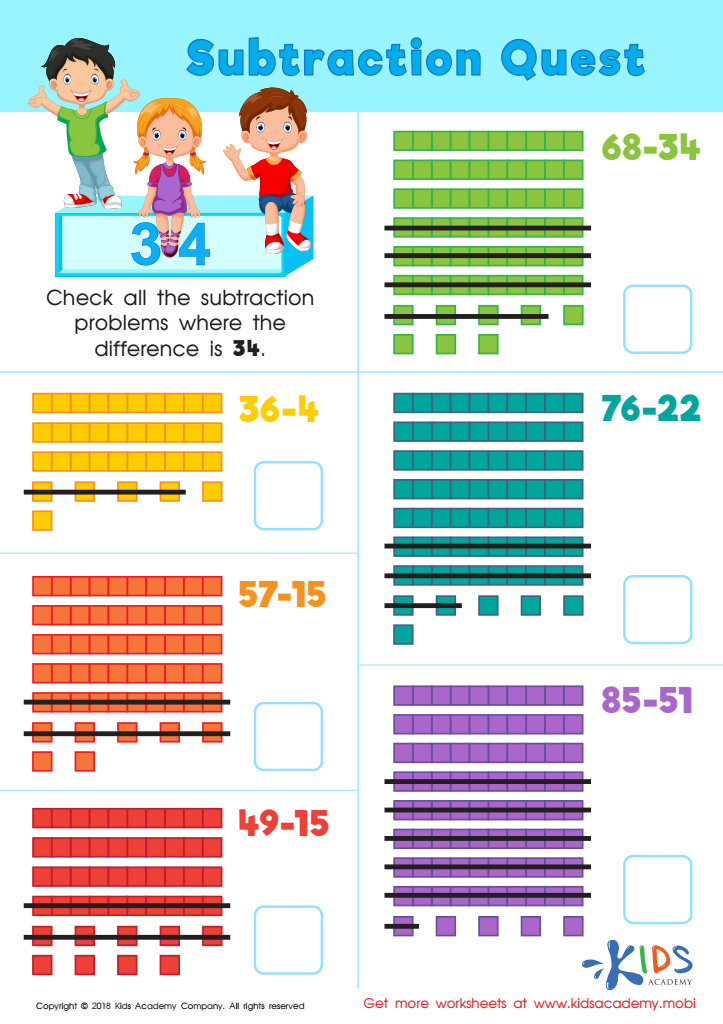

Subtraction Quest Worksheet
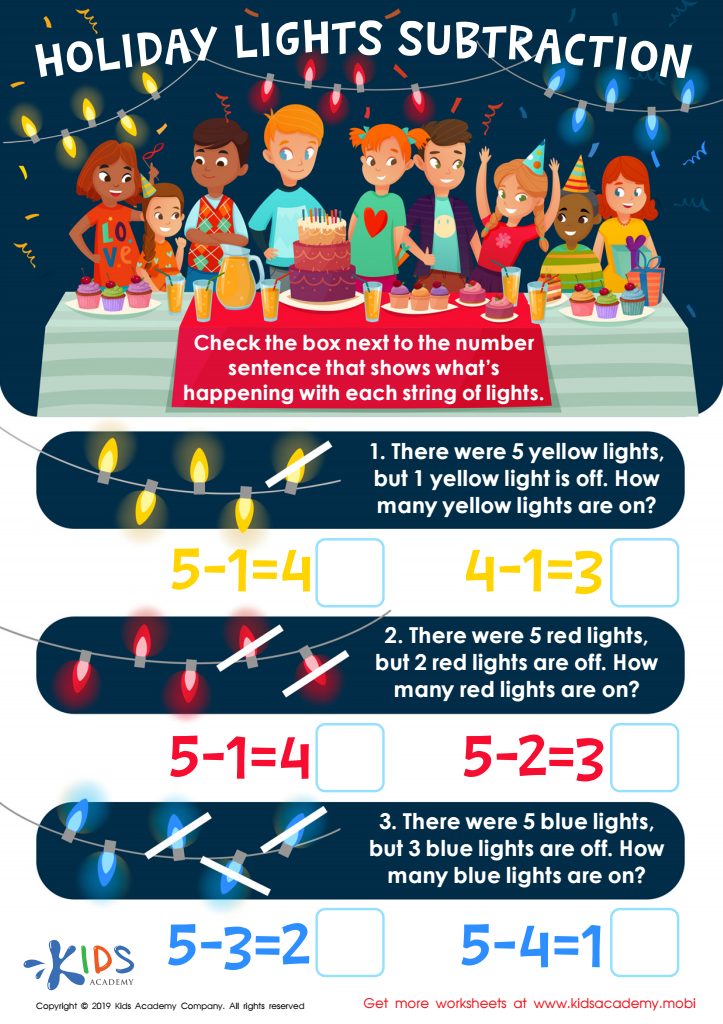

Holiday Lights Subtraction Worksheet
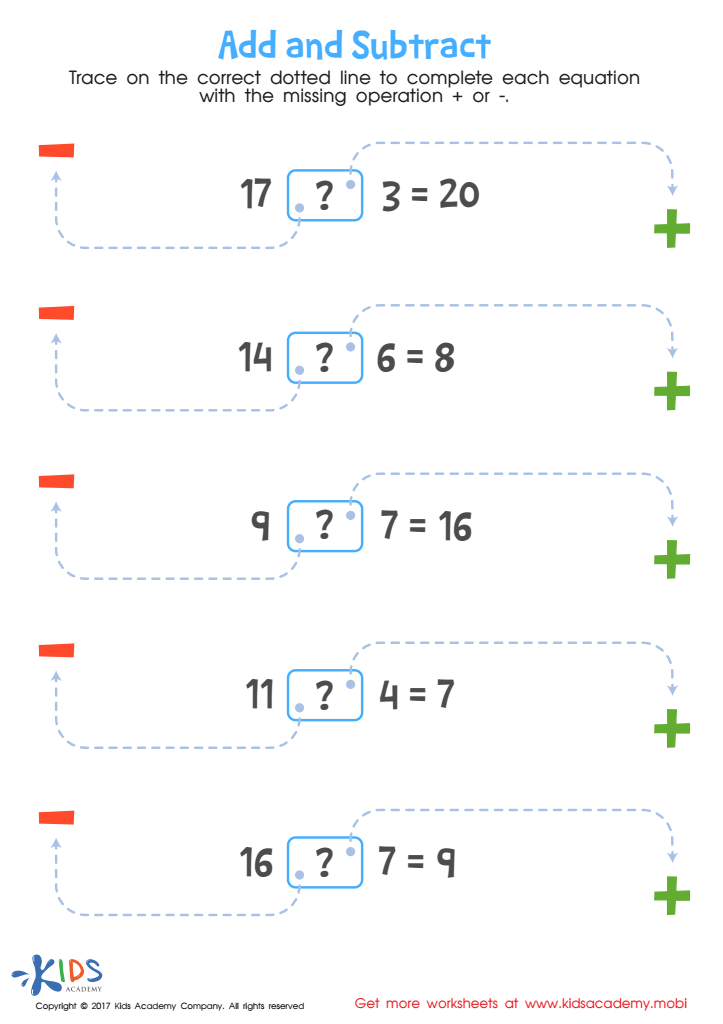

Add and Subtract Worksheet
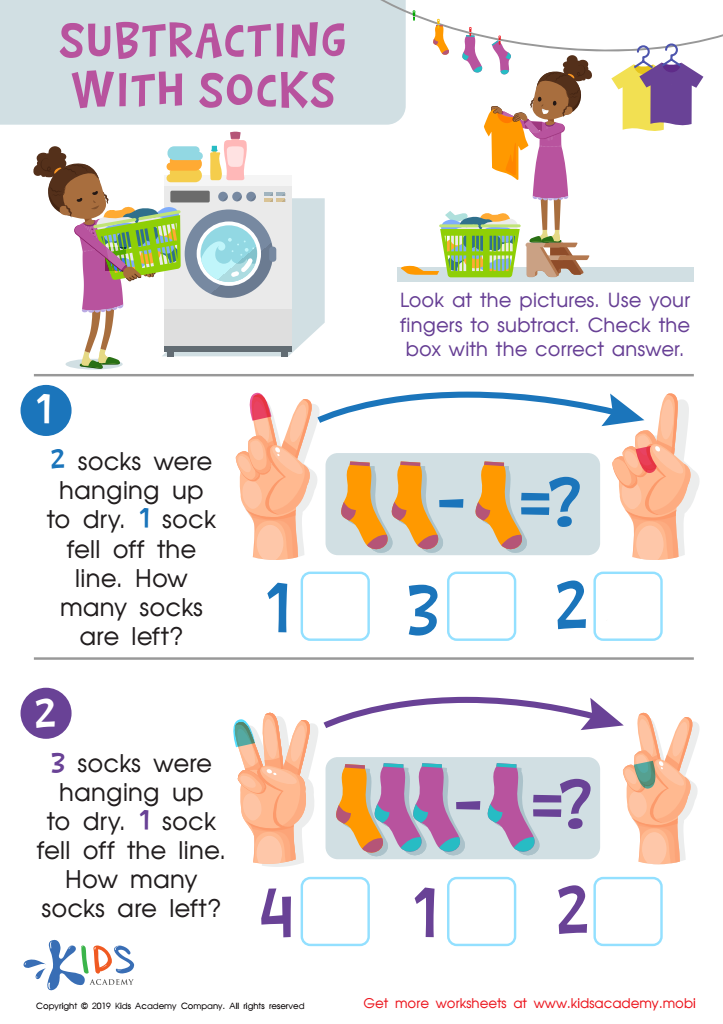

Subtracting Socks Worksheet
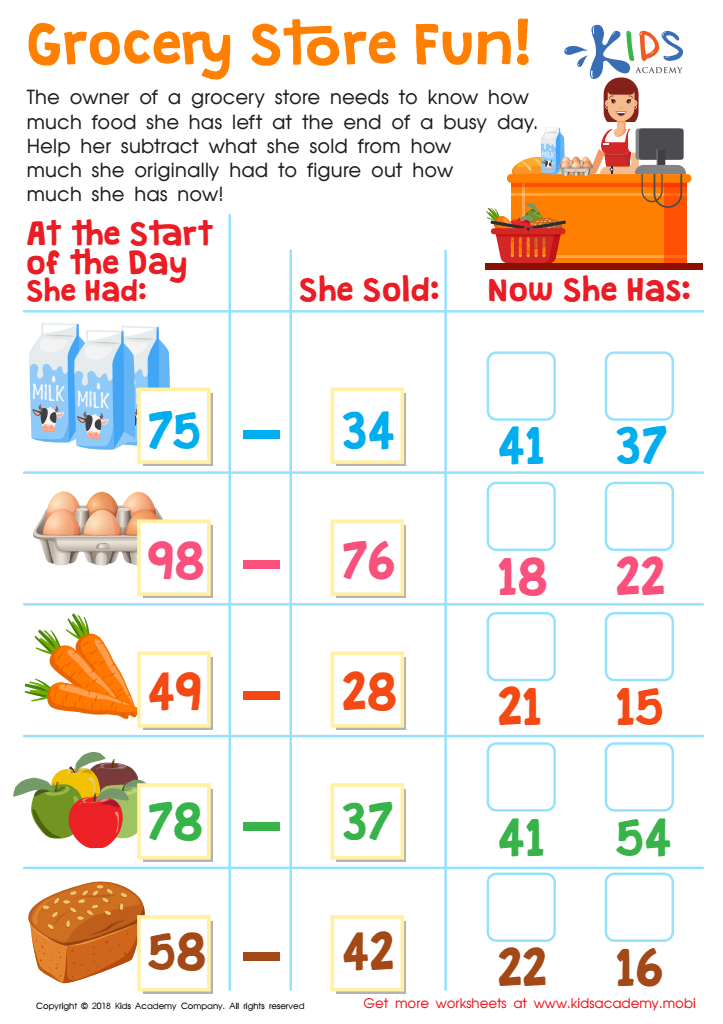

Grocery Store Fun! Worksheet
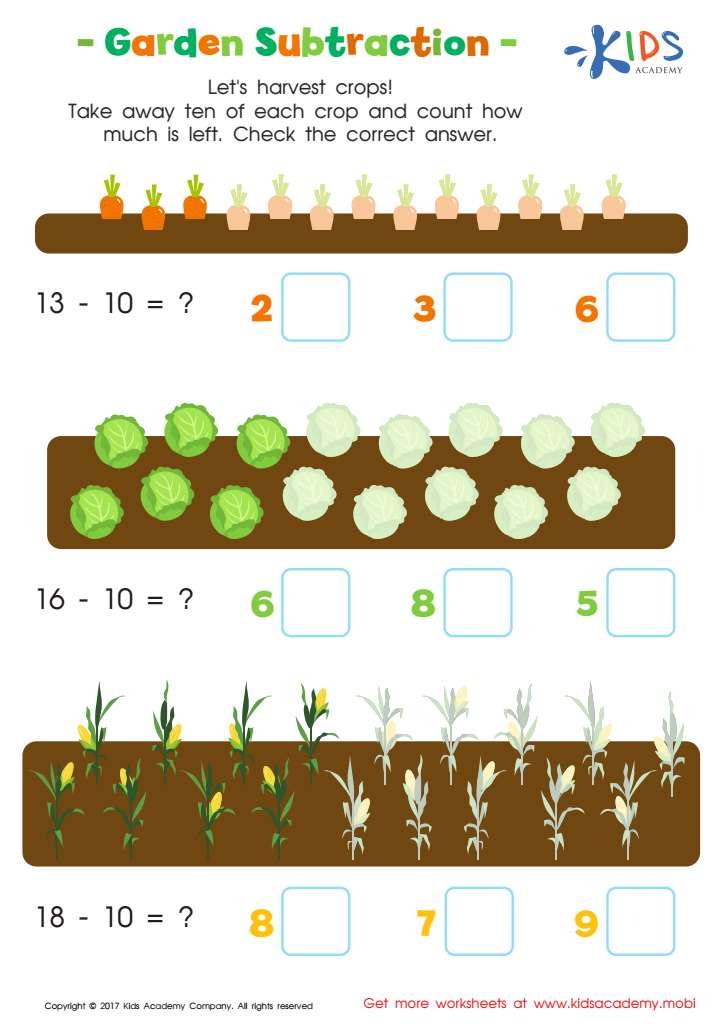

Garden Subtraction Worksheet
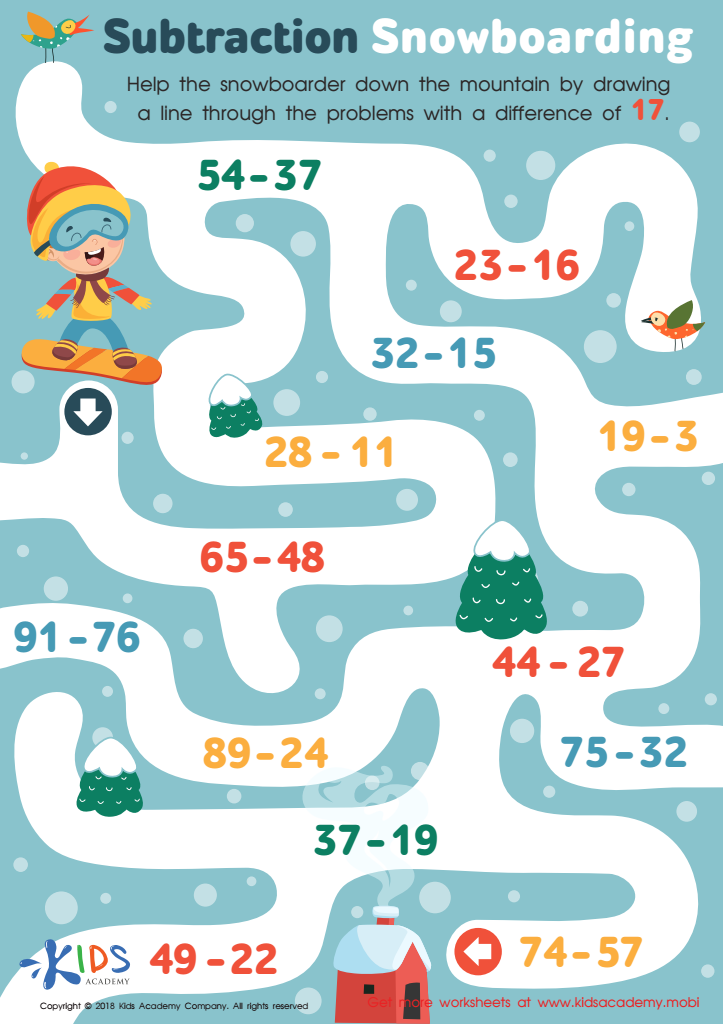

Subtraction Snowboarding Worksheet
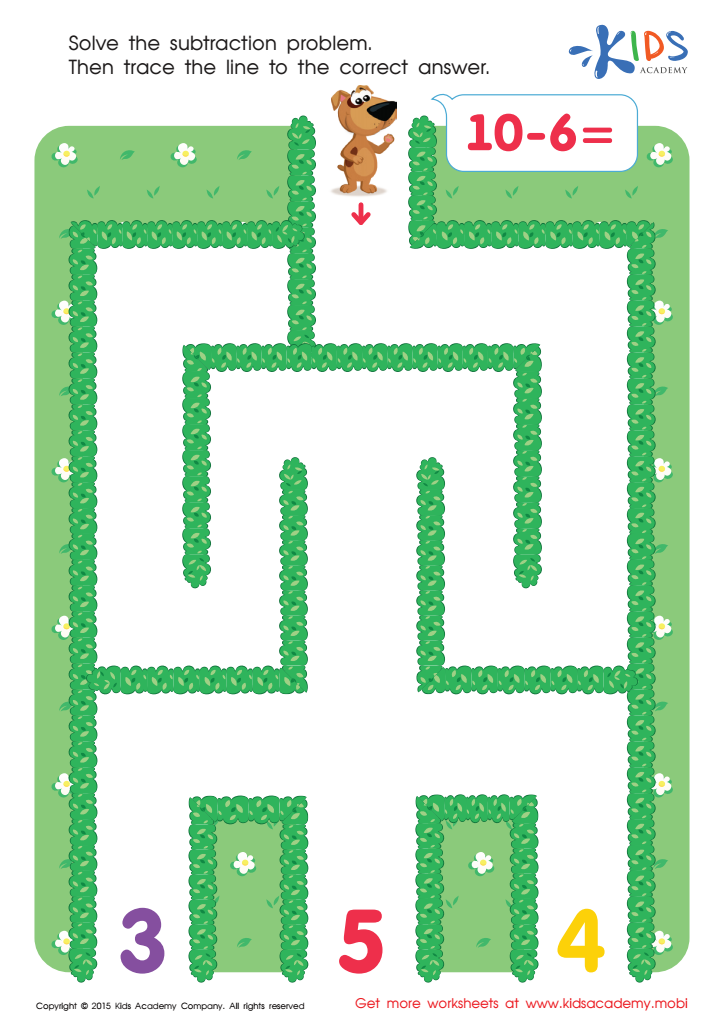

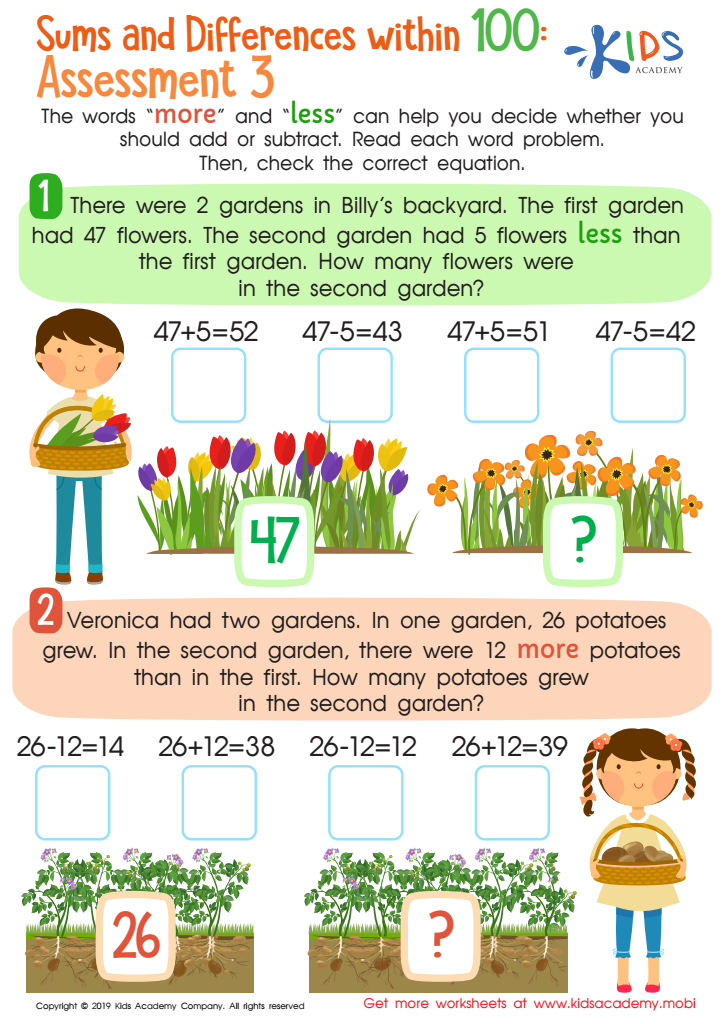

Sums and Differences Within 1 - Assessment 1 Worksheet
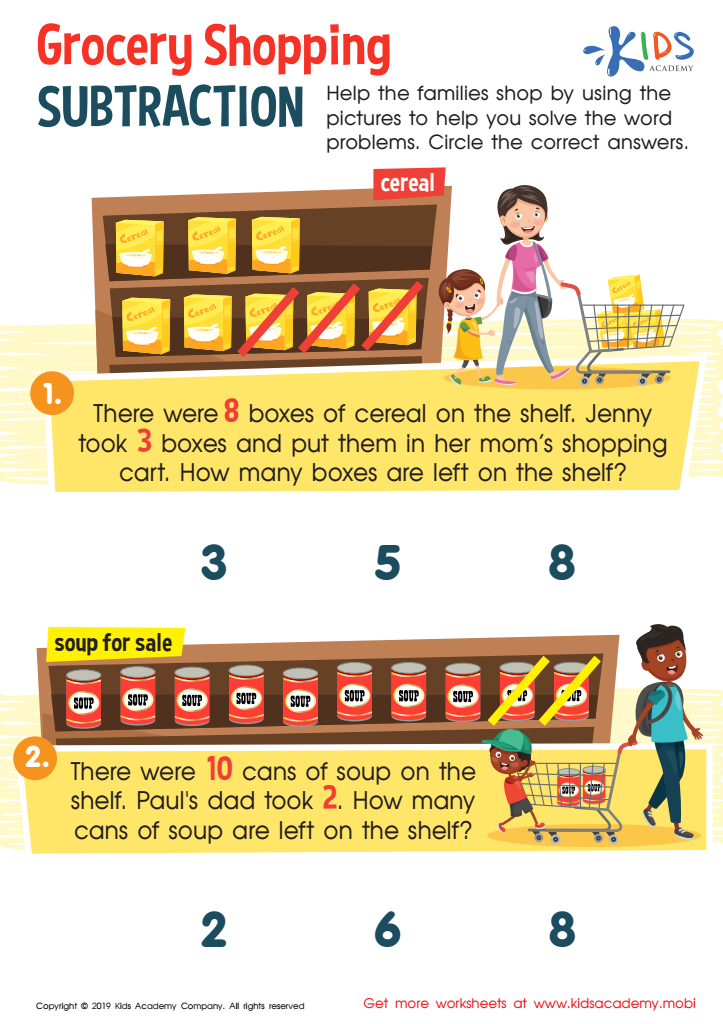

Grocery Shopping Subtraction Worksheet
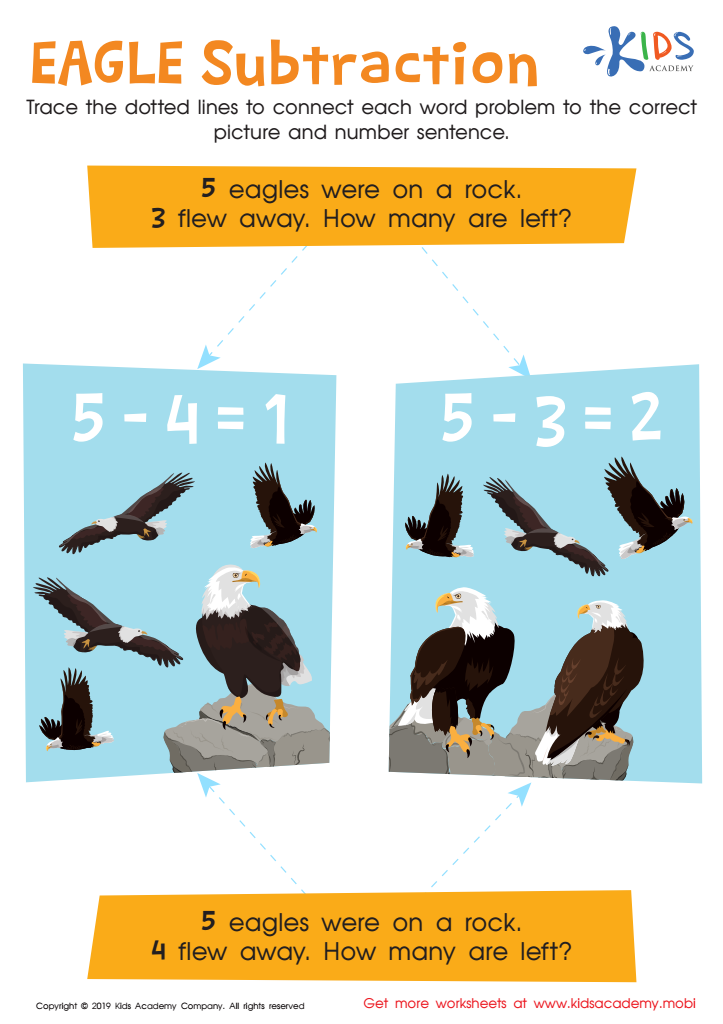

Eagle Subtraction Worksheet
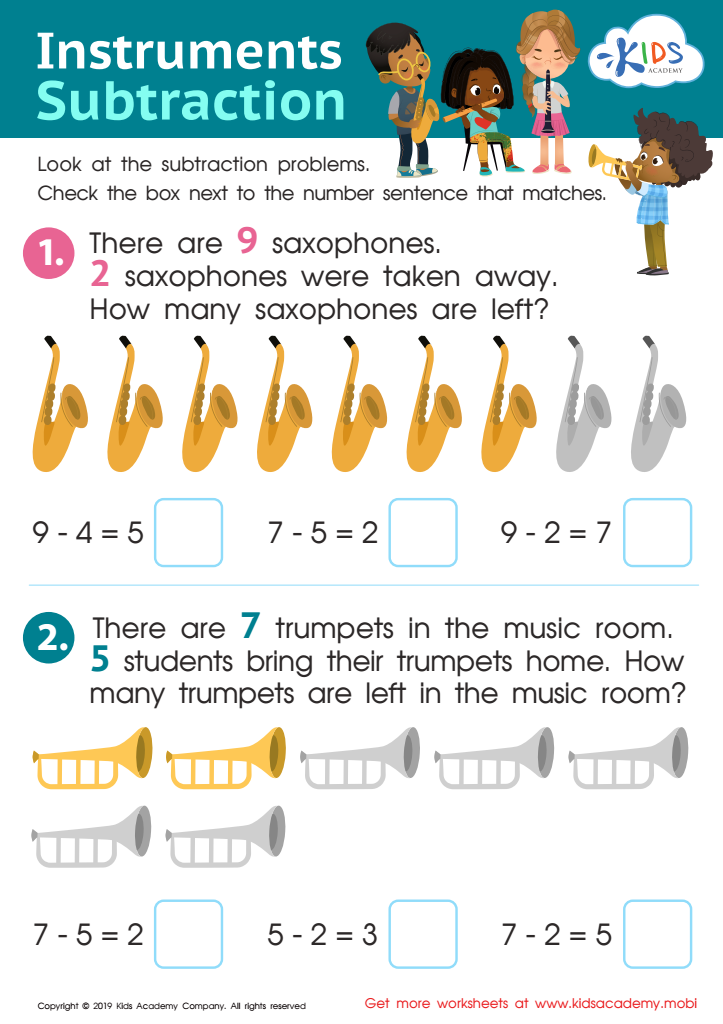

Instrument Subtraction Worksheet
Parents and teachers should prioritize subtraction and addition practice for children ages 3-8 because these foundational math skills are crucial for their cognitive development and future academic success. At this young age, children's brains are highly receptive to learning, and mastering basic arithmetic sets the stage for more complex mathematical concepts. By practicing addition and subtraction, children improve their number sense, understanding of quantity, and ability to solve problems, which are essential competencies not just in math but in everyday life.
Moreover, early math skills are strongly linked to later academic achievement across various subjects. Children who develop proficiency in addition and subtraction tend to fare better in higher-level math and related disciplines, including science and technology. These early skills also enhance logical thinking and reasoning abilities, which are vital for solving problems methodically.
In addition to cognitive benefits, practicing these skills in a supportive environment can boost children's confidence and foster a positive attitude towards learning. Games, hands-on activities, and engaging exercises make learning fun and help maintain children's interest and motivation.
Ultimately, investing time in practicing subtraction and addition for young children prepares them for future educational challenges, helping to ensure their long-term success and interest in learning.
 Assign to My Students
Assign to My Students
